Baseball History Comes Alive Now Ranked #2 by Feedspot Among All Internet Baseball History Websites and Blogs!
Guest Submissions from Our Readers Always Welcome!
Scroll Down to Read Today’s Essay
Subscribe to Baseball History Comes Alive for automatic updates. As a Free Bonus, you’ll get instant access to my Special Report: Gary’s Handy Dandy World Series Reference Guide!
“Bobby Thomson and the Shot Heard ‘Round the World” Photo Gallery
Click on any image below to see photos in full size and to start Photo Gallery:
We welcome back Bill Schaefer today with an interesting segue to Vince Jankoski’s series on double plays. Bill reminds us of a fantastic twin killing initiated by Bobby Thomson in the final series of the 1951 pennant race that may very well have changed the course of baseball history. We see Bobby above, locked in a jubilant embrace with manager Leo Durocher, one that only a pennant celebration can elicit! -GL
Bobby Thomson’s Doubleplay Saved His “Shot” Legacy
Beginning play on September 9, 1951, the New York Giants were 82-55. The Brooklyn Dodgers were 87-47. The second-place Giants trailed the first-place Dodgers by six and a half games in the standings. They would play the Dodgers one final time on that Sunday at Ebbets Field. After trimming seven games off Brooklyn’s thirteen-and-a-half game lead on August 11, highlighted by a 16-game winning streak, they could not now fall seven and a half games behind their bitter rivals with only sixteen games remaining and have any chance to win the National League pennant.
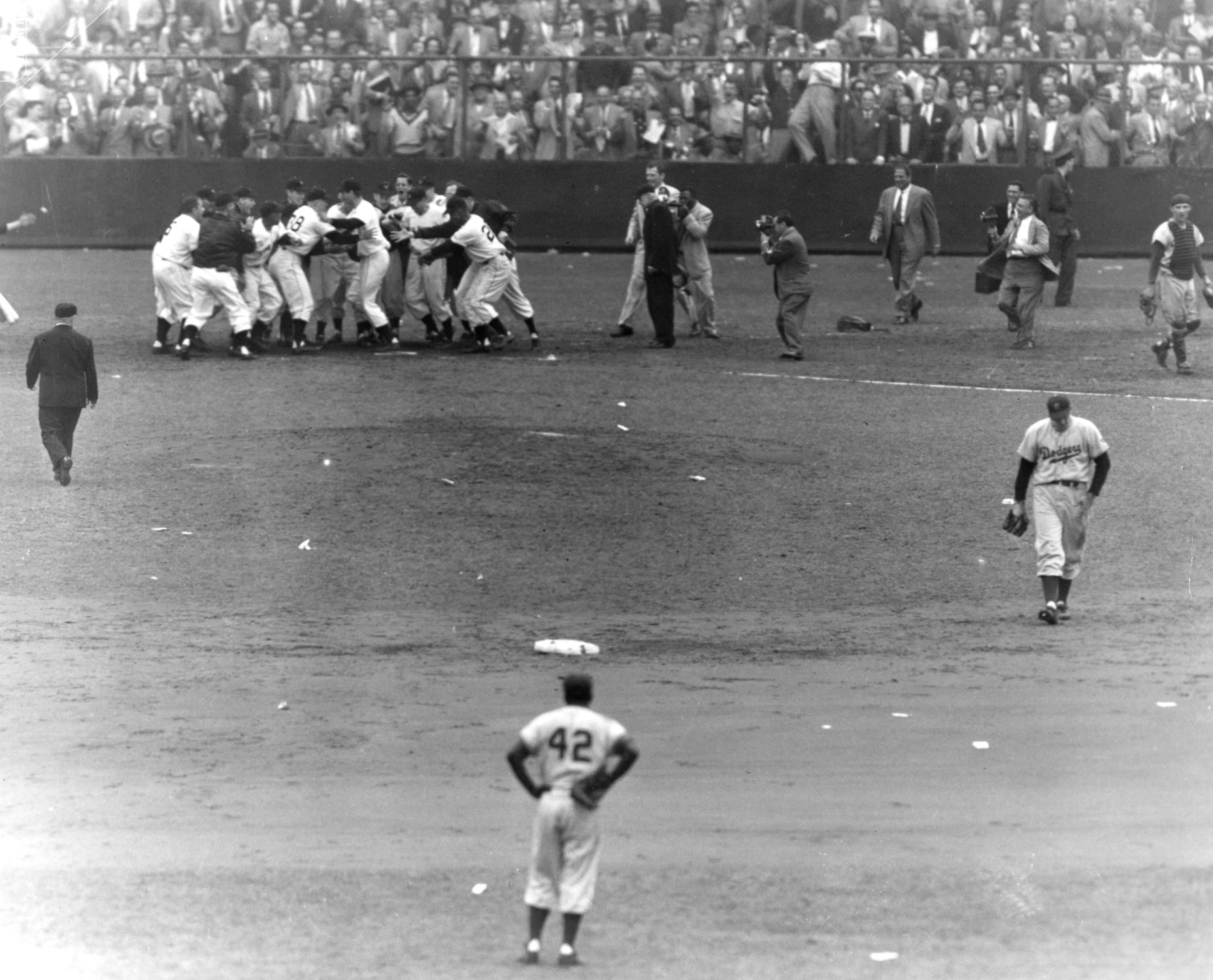
The Giants came into the final two-game weekend series with the crew from Gowanus Canal on a four-game winning streak, having beaten the Phillies and sweeping through the Braves at the Polo Grounds, thus reducing Brooklyn’s margin to five and a half games. Thoughts of emerging on Monday, September 10, only three and a half games out of first place was heady wine! However, Don Newcombe had other ideas and twirled a brilliant two-hitter, blanking the Giants 9-0 on Saturday, September 8. Suddenly, the rosy numbers game turned ugly, and fans knew that now the Giants had to win Sunday’s finale, or everything was lost.
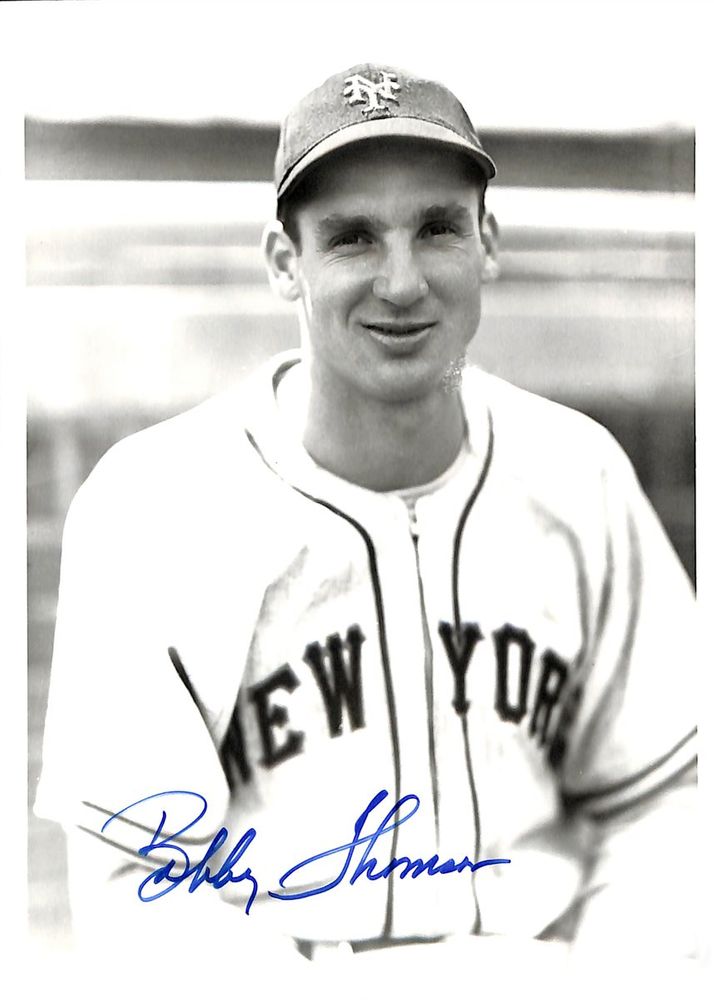
A grim battle was unfolding, with Sal “the Barber” Maglie laboring to gain command in the early innings and Ralph Branca pitching smoothly, yielding only a two-run homer to Monte Irvin in the fourth inning. The Giants were leading 2-0 in the Dodgers eighth, but Sal was fatigued. He always pitched well against Brooklyn — but their wrecking crew line-up could put a team away in a hurry. With one out, Snider doubled high off the right screen. Then Jackie Robinson lined a triple to center. Score 2-1, tying run on third. Menacing Andy Pafko dug in. He exuded power and had no fear of pitcher or circumstance. Maglie was pitching on fumes.
On Sal’s first pitch, Pafko exploded out of his rocking chair crouch and smashed a bullet ticketed for the left field corner, extra bases and a tie game with the go-ahead run on second base for sure. But wait! With lightning-like reflexes, Bobby Thomson, playing third, miraculously backhanded the drive on the short hop, tagged Robinson sliding back to the base and fired to Whitey Lockman at first to complete an incredible double play and end the inning!
A weary Sal Maglie, gaining a second wind, retired the Dodgers in order in the ninth inning. And the Giants lived another day. The lead was again five and a half games.
The magnitude of the play, with only 16 games remaining, was expressed by Dick Young in Monday’s Daily News, on September 10,
“If by some miracle the Giants go on to snag the National League flag, Giants fans will not remember Monte Irvin’s homerun or that Sal Maglie won his 20th. They will remember Bobby Thomson’s game-saving play.”
He was so right!
The Giants, supercharged by the win, went on to win 13 of their final 16 games, a playoff ensued and a famous homerun immortalized Bobby Thomson. But without the amazing pennant-saving double play initiated by third baseman Robert Brown Thomson 24 days earlier, there likely would be no famous homerun in the record books.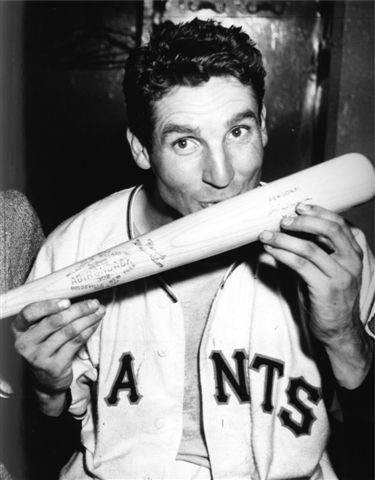
And “The Staten Island Scot” would have been remembered only as almost as fast as Mickey Mantle in full stride. A pretty good outfielder. When concentrating, a good hitter with power. And a handsome lad born in Glasgow, United Kingdom.
(Bobby was a curious third baseman. He possessed a powerful but erratic arm with amazing reflexes that gave him big play potential. But his glove inconsistency almost cost the Giants in the playoffs. His dWAR in ’51 well below average).
A play across the diamond changed a pennant race and made possible:
“THE SHOT HEARD ‘ROUND THE WORLD.”
Bill Schaefer
Sources: ‘51 schedule almanac Giants, Dodgers; Bobby Thomson, Wikipedia; Bobby Thomson baseball ref; Some Catch, book, by Bill Schaefer, Gary Livacari, editor.
Subscribe to our website, Baseball History Comes Alive with over 1400 fully categorized baseball essays and photo galleries, now surpassing the one million hits mark with 1,102,000 hits and over 950 subscribers
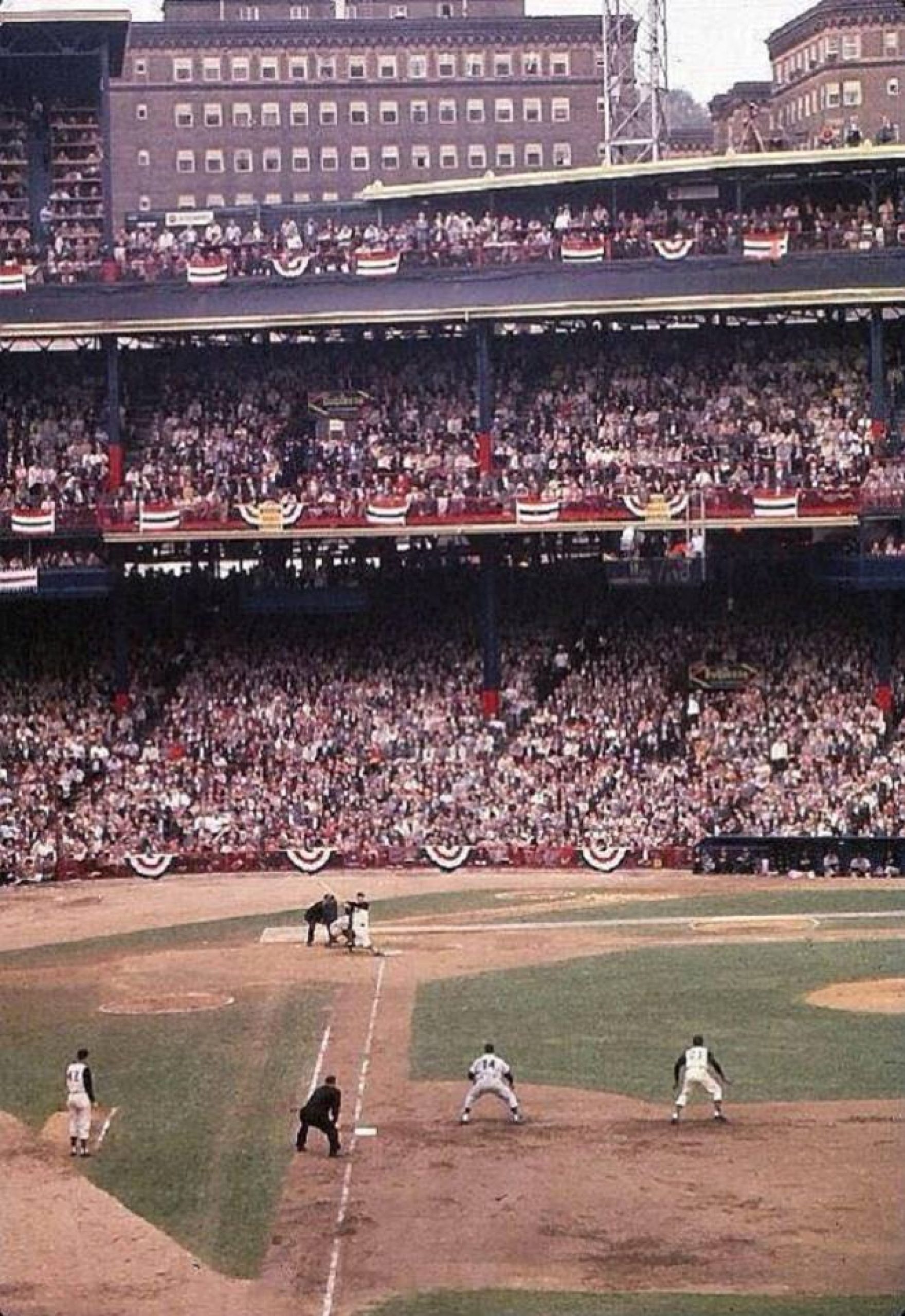
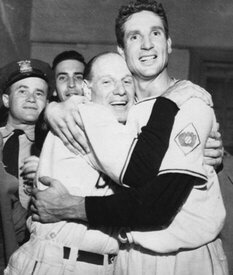
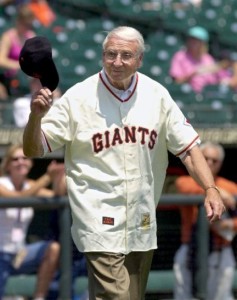
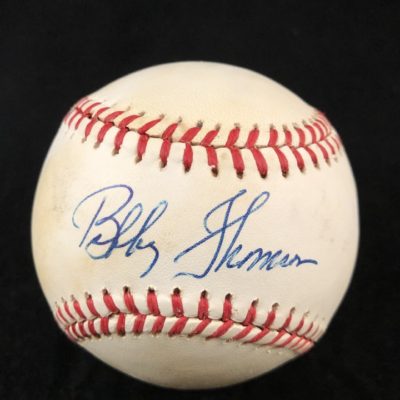
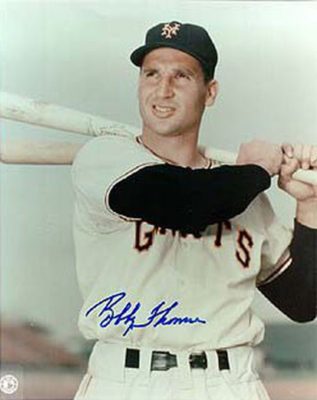
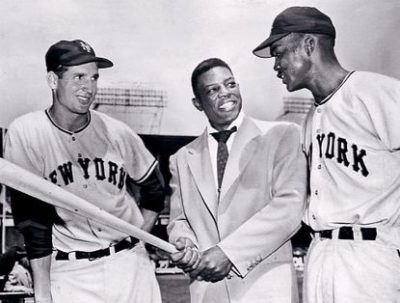
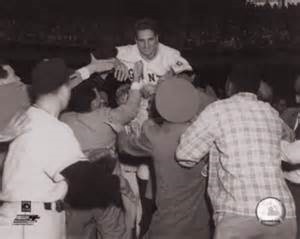
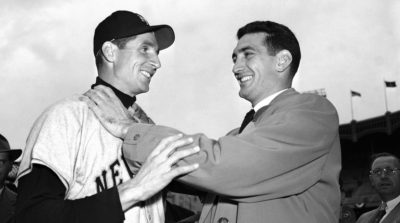
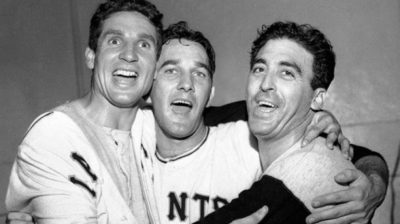
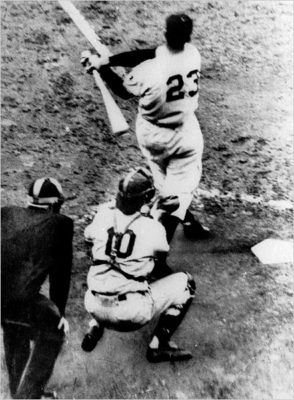
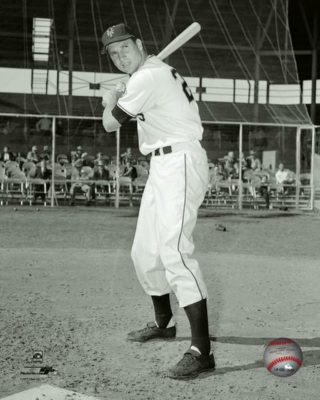

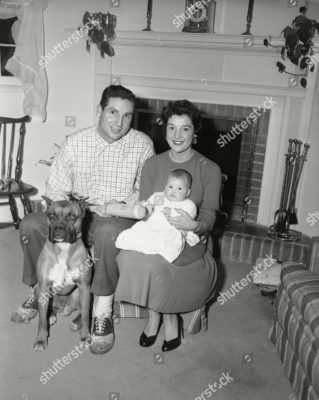
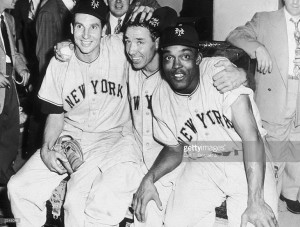
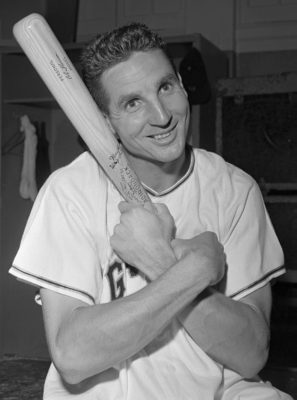
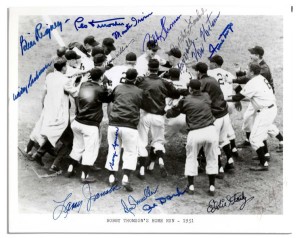
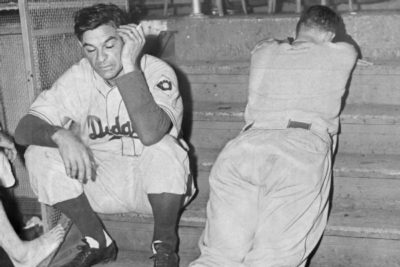
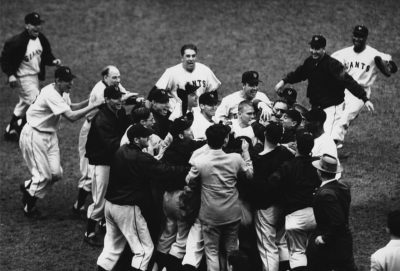
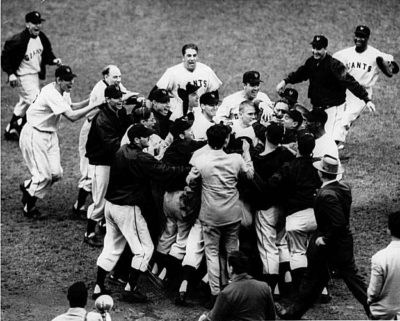

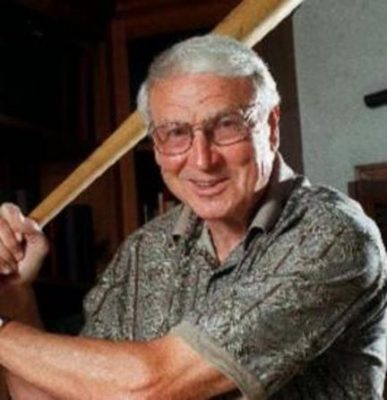
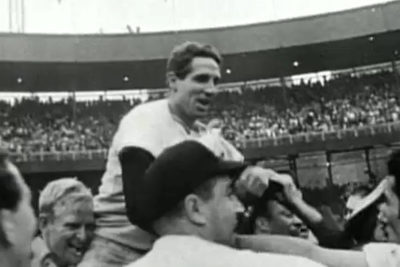
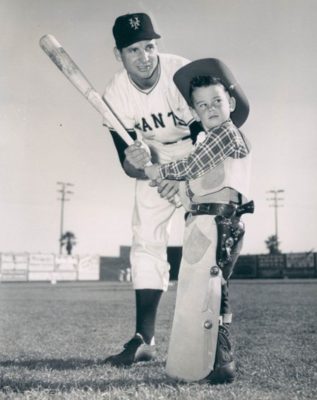
A great article by Professor Schaefer. Thnx for posting it, Gary. I knew nothing about Thompson’s clutch DP during that ’51 pennant chase, so this was a very interesting and informative read for me. Once again, BHCA hits one “outta da pawk” ! Most baseball fans know of Thompson’s walk-off HR to win the pennant for NYG. A few interesting side notes to that famous event in baseball lore are : the photo of a dejected Jackie Robinson in centerfield watching the Giants’ celebrating, the iconic radio call of Giant’s broadcaster Russ Hodges, and the later-in-life friendship of Thompson and Ralph Branca. I’ve heard that they used to attend book signing, card shows, and personal appearance events together. Unlike the tragic downhill slide of Angels’ Donnie Moore in the aftermath of Boston’s Dave Henderson’s HR off of him in the 1986 ALCS, Branca was able to lead a normal life after his baseball career had concluded.
Thanks Tom…greaat comments!
Another great story from Bill S. and I too was unaware of Thomson as a 3B. He played 184 of his 1,700 games at the hot corner. Thanks!
Thanks so much, Thomas and Mark. You guys give good research!
In ’51, Branca and Thomson did a parody of a popular song of the day by Tony Bennett. Part of it was Thomson referring to his homer as “my dinky Chinky shot.” Meaning the famous clout was a “Chinese” (or cheap) home run. They quickly dumped that lyric from the song.
Then the two did the shows, signings, etc. and became good friends. But subsequently Branca began to annoy Bobby by chiding him, “If I had thrown my curve, you wouldn’t have hit it out.” Then when the sign stealing became a big story, Ralph felt vindicated because Thomson knew what was coming.
Bobby gently reminded the Brooklyn pitcher that he hit the game winning homer in the first playoff at Ebbets Field, where there were no mirrors flashing signs. And if Branca was so confident in his curve why throw two consecutive fast balls where bob’s bat was lightning fast on the inside blazer?
Branca backed off and the friendship resumed for the remainder of their lives.
That’s a story every baseball fan should know about. So, if Thomson doesn’t make the play, the score is tied with the go ahead run on second. Gil Hodges is up next, followed by Rube Walker with Roy Campanella and Cal Abrams available to pinch hit. There is a good chance the Bums score, win the game and the pennant. Thomson goes down in history as a pretty good power hitter. Branca is remembered as a guy with a couple of good seasons. The Dodgers win four pennants in five years and are one game away from duplicating the Yankees feat of five pennants in five years. A split second reflex changes baseball history.
Thanks Vince…all good points!
Vince,
You are correct, sir, Hodges was on deck and, although Gil had a tough time with Maglie’s Mexican league honed curve ball, Sal was probably done if Pafko’s shot gets down the line. Sheldon Jones may have been summoned but it was most likely curtains for the Jints without the killer DP.
Branca is remembered as a fine man and a competitor who always wanted the ball. But also, a pitcher who developed a propensity for yielding the “Big Fly” in big spots. My dad used to say, “He pitches just good enough to lose.” Just one of those things.
Manager Charlie Dressen had a huge ego and always liked to point out how smart he was in certain situations. He could also be a little Captain Queeg in his dealings with subordinates. Clem Labine had nasty stuff in his rookie year, 1951, flashing a 2.20 ERA. In mid-summer, Dressen put Clem in the doghouse for a long stretch, for reasons not known. Labine could have really helped a tired Dodger pitching staff but was not used for several weeks.
Dressen was lucky to keep his job after the historic season.